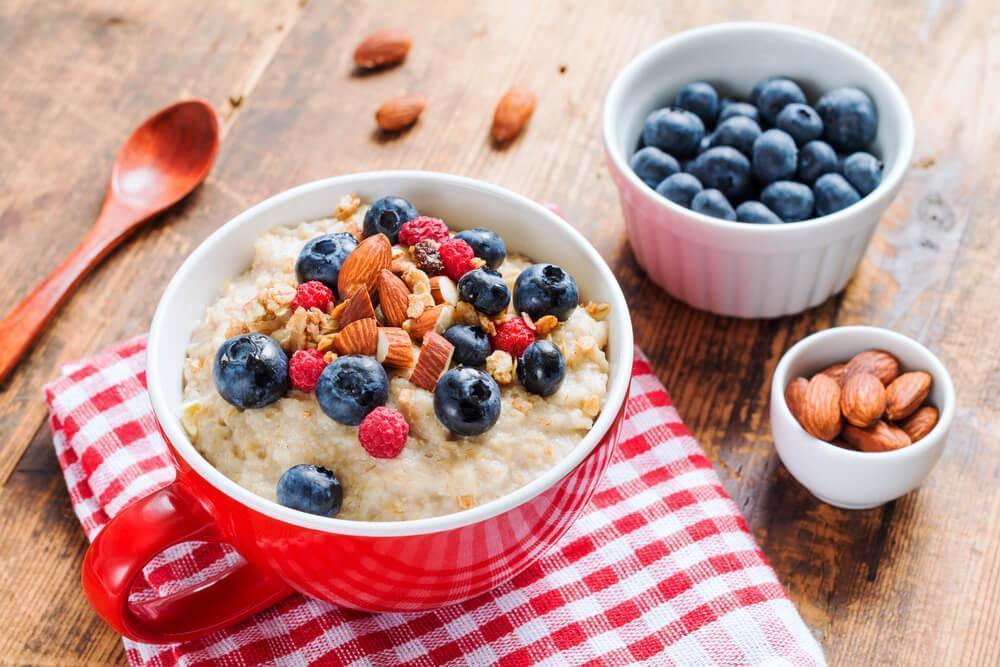
Way before Huey Lewis wrote the song, “I Want A New Drug,” the world had become obsessed with obtaining a natural high. Huey was looking for a drug that “won’t hurt my head, one that won’t make my face break out, or make my eyes too red.” Could such a thing be possible?
What do you do when your “get up and go” gets up and goes? Drink coffee? Down an energy drink? Eat a chocolate bar? It seems there’s no way to increase your drive without crashing, and as people become more conscious about what they put into their bodies, the search for the ultimate high gets more and more desperate. If you’ve been picking your poison when it comes to boosting your energy, here are some less poisonous options that may just work.
1. More Magnesium
According to Jefferson Airplane’s iconic hit, Ask Alice, “The (pills) that mother gives you don’t do anything at all.” Apparently, they do. If you find yourself lagging during the day, the problem might be a lack of magnesium in your diet.
New York University nutritionist Samantha Heller, MS, RD, says that if you feel your patience growing short, and your level of frustration growing higher, magnesium can be the answer. Heller says, “The mineral is needed for 300 biochemical reactions in the body, so when levels are even a little low, energy can drop.” If you want to try upping your magnesium intake, Heller recommends increasing the whole grains in your diet, munching on a handful of nuts every day, and eating more fish, especially halibut.
2. More Water, Less Alcohol
While it’s hard to believe that something as bland as a cup of water can do anything more than pass through the system, sometimes it’s more about what happens when we don’t get water than what happens when we do. A dehydrated body is likely to be a tired body, and sometimes feelings of fatigue are actually signs of dehydration. Notice your thirst, it’s your body’s way of telling you it needs more liquids, and be sure to drink up when it comes on, but opt for something non-alcoholic.
Although alcohol may quench your thirst, it also affects your quality of sleep. Heller says, “While alcohol initially helps you fall asleep, it also interferes with deep sleep, so you’re not getting the rest you think you are, even if you sleep a full eight hours.” So while the nightcap may seem to be the more attractive choice the night before, the Evian might be the wise choice for the morning after.
3. Don’t Skip Breakfast

Hangry: The way a person feels when they skip breakfast. Ok, it’s not an exact definition, but an empty stomach is certainly not going to make you any more popular with your coworkers. Heller says that people who eat breakfast stay in a better mood and have more energy throughout the day, because breaking the fast after eight hours of sleep gives your body a jolt of energy that will last throughout the day. So when bacon calls, answer it, and try to get some Green Tea in to really boost your energy.
4. Turn Up the Mix on your Java
If you drink so much coffee that people don’t recognize you without your Starbucks cup, you don’t have have to trade it in, just fill it with something a little more sustaining. If you don’t like the wired-then-tired effect of coffee, tell your barista to make it a latte. Latte combines the quick hit of caffeine with milk protein to put some lasting fuel in your morning Joe, and help you stay calm and focused.
5. Power Snacking
If your idea of power snacking is eating as many bags of Doritos as quickly as possible, sorry to spoil your fun. Power snacking refers to snacking on high protein foods with fiber and some fats at regular intervals to keep you powered up throughout the day. Peanut butter du jour, almonds, and yogurt usually get top billing on the list of power snacks, condolences to the Bugles crowd. According to nutritionist Keith Ayoob, “The carbs offer a quick pick me up, the protein keeps your energy up, and the fat makes the energy last.”
6. TMI Zzzz
It turns out that too much information can be a bad thing in more ways than one. Studies show information overload can put strain on our brains that can zap our energy levels. Experts recommend an hour-long siesta during the day can help to reverse effects of TMI and help us retain what we have learned.
7. Let There Be Light

Think it’s just a coincidence that we get most of our sleep when it’s dark out? There is nothing more painful to a late sleeper than the intrusive ray of sun leaking through the blinds of his bedroom window, and nothing more invigorating to an early riser than a bright sunny day. According to Michael Terman, Ph.D, there’s a reason for that. “Artificial or natural,” he explains, “light helps to optimize the body’s wake-up processes.” He recommends using compact fluorescent bulbs labeled “cool white’ or daylight inside the house to optimize energy levels, claiming, “CFLs with these color temperatures emit a white light closer to outdoor light than the yellowish kind from incandescents.”
8. Eat Less Sugar, More Grains
It may take motivation to exercise, work, or travel, but eating doesn’t require much motivation at all. No one says they’re too tired to eat, but if they eat the wrong foods, they may become too tired to do anything else. You know how you feel after that second slice of cheesecake. That dreamy floaty feeling right before it hits your stomach? That’s the initial spike in blood sugar giving you that surge of energy, followed by that quick drop which makes you feel like a ton of lead. Experts say, grains are a better choice. Studies show that eating whole grain increases the body’s insulin sensitivity that allow for a slower steadier release that won’t cause energy levels to spike and plummet.
9. Avoid Work Daze
If your gears are stuck in neutral, it can be hard to shift yourself into drive. When you’re in one place and one position all day, you’re likely to start to feel a work daze coming on, and that’s when you need to take action. As long as you have yourself and some space to walk on, a ten-minute walk is an ideal way to get your heart pumping and the circulation flowing to your brain. In fact, experiments conducted at CalState show that the effects of a ten-minute walk can actually last up to two hours, and if you keep up the pattern for three weeks, your mood and energy levels will be higher overall. How’s that for a return on your investment?
10. Veggie Juice

Want to hear something shocking? Veggie juice. Experts say drinking vegetable juice increases energy by shocking your body awake. The reasoning? When vegetables are juiced they lose the fiber that makes them harder for your body to digest. Because less work is required for your body to absorb the nutrition from veggie juice than whole veggies, the increase in energy is more intense and more immediate. It also eliminates toxins and supplies cells with nutrients for sustainable energy that will last throughout the day.
The downside? While veggie juice requires less work to digest, it may require more work to prepare. Store bought juices can be loaded with sugar and preservatives that actually negate many of the benefits of the vegetables, so you may want to invest in a juicer or start a tab at a health food store.
11. Tap Into Your Natural Energy
You can file this one under “sounds weird, but why not?” According to Mary Buck Murray, nutritional coach, tapping your thymus may be a way to increase energy. Your thy-what? The thymus is located in the center of your chest, between the breasts and below the collarbone, and if Murray is on the money, tapping it, “triggers production of T-cells, boosts energy, relieves stress, and increases strength and vitality.” She recommends a 20-second thymus tap session daily, while breathing in and out.
Another one for the hopeful: rubbing the ears. Apparently, grabbing your ears with your forefinger and thumb and giving them a 15-second rub will wake the body blood flow and pathways of energy, according to the Chinese medical tradition.
12. Incense and Peppermints
When the Strawberry Alarm Clock released the song, “Incense and Peppermints” in the early 1960’s it probably wasn’t a natural high they were thinking about. However, about 60 years later, there is still talk about peppermint as a mood enhancer. When it comes to the world of aromatherapy, peppermint oil is known to increase oxygen to the brain, increase focus and get your mind working. Dab a few drops on the wrist each morning to invigorate you throughout the day, or out some in your steam diffuser at work or home.
13. Teas Yourself
Herbal tea may seem to pale in comparison when pitted against the rich flavor and aroma of coffee, but don’t underestimate its powers. Tea is an all natural way to boost energy levels without the jolt of coffee or stimulants.
While green tea’s star is shining brightly at the top of the list of most beneficial herbal teas, rooibos tea is another option with a lot of perks. Green tea is known for its anti-aging and antioxidative catechin, which fight off cell damage, while rooibos staves off fatigue. Packed with asphalathin to balance adrenal hormones and reduce stress levels, rooibos can help keep energy up and mood swings to a minimum.
14. De-Stress

Probably the worst thing about stress is how easily it wears you down. Anxiety is one of the biggest energy suckers, and can leave you physically and mentally drained, even if you’ve spent your entire day in bed. Over time, chronic levels of stress can erode overall energy levels, and you’ll begin to find yourself more exhausted and less active in general. How can you stave off stress before total energy depletion sets in? For some, exercise can be a wonderful way of combatting stress, while others may take their solace in meditation, book reading, listening to music or even talking on the phone. Tai chi, yoga, whatever it is for you, make sure to set some time aside for it each day and you’ll find yourself less worn down and more productive on the whole.
15. Have Your Thyroid Checked
Last but not least, if you find your low energy is becoming more of a rule than an exception, you should probably visit a doctor. Anemia is a common thyroid dysfunction caused by a lack of red blood cells that can easily be corrected by upping your iron intake, and there are a host of medications available to help get you back on track. Thyroid malfunction can be a problem for women who have just given birth or who are experiencing peri-menopause, and a simple blood test can lead to a diagnosis that could prove to be life-changing.
Let us know how you keep going when your energy tanks. Maybe your knowledge will give us our power.





Leave A Comment